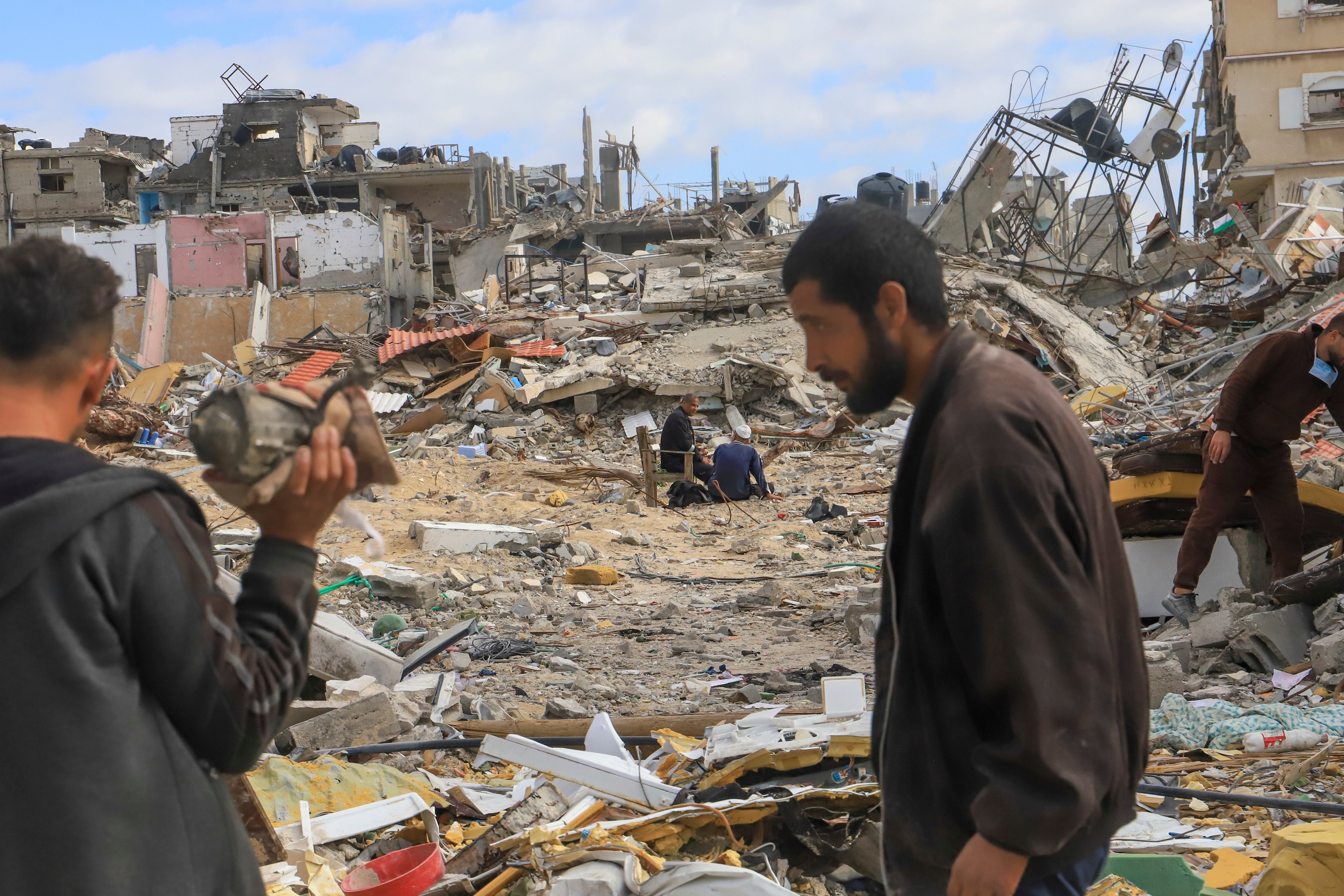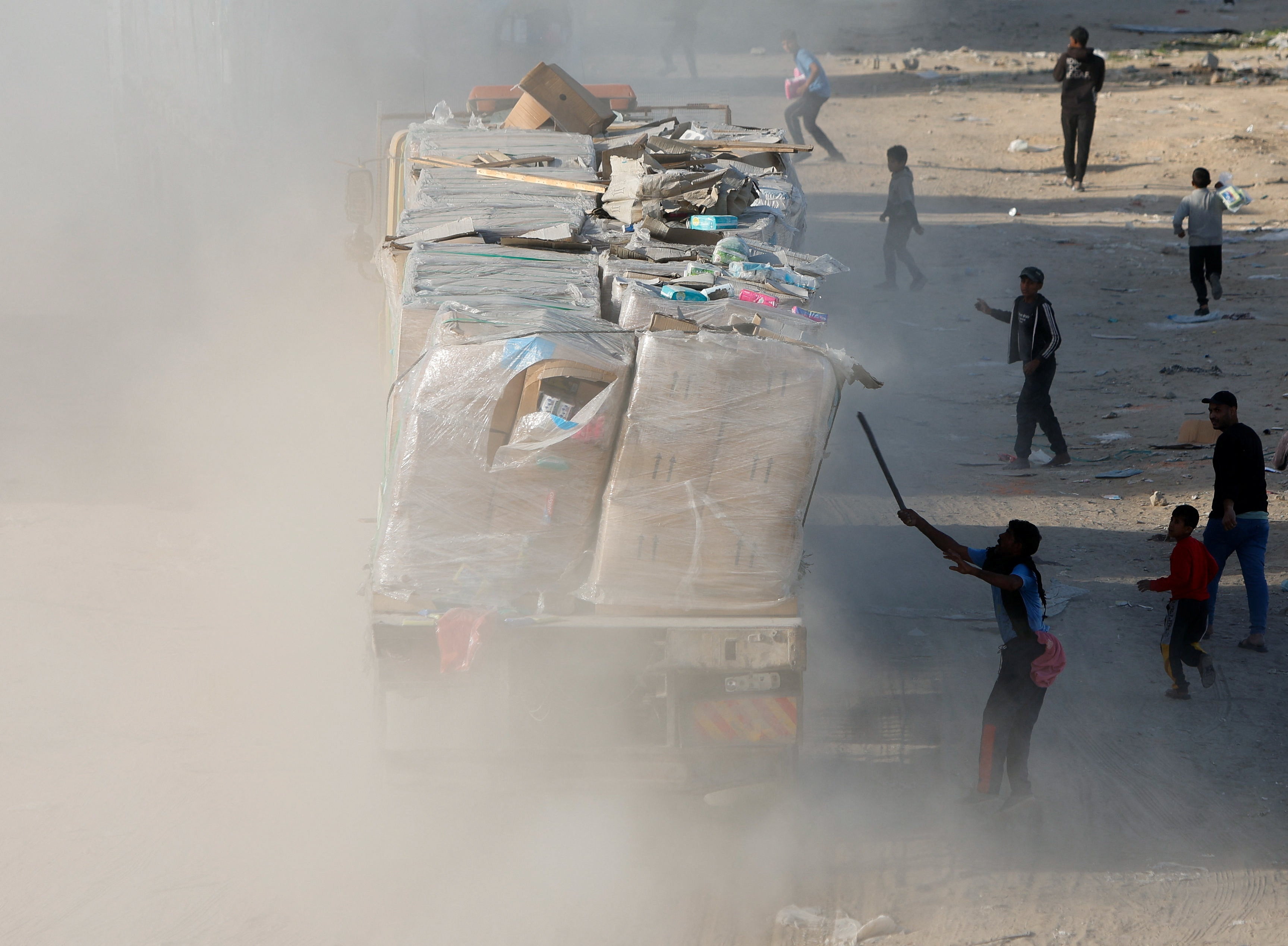Palestinians have begun searching for the potenially thousands believed to still be trapped under rubble in Gaza, on the second day of the ceasefire between Israel and Hamas.
Residents have expressed their shock at the devastation wrought by 15 months of war on the coastal enclave, which has also inflamed the entire Middle East, with one displaced Gazan who lost his brother and nephew in the conflict describing the “total destruction” he has witnessed.
Now attention is starting to shift to the rebuilding of the Strip after the truce took effect on Sunday, with the release of the first three hostages held by Hamas and 90 Palestinians freed from Israeli jails.
Hamas triggered the war in Gaza with an attack on southern Israel on 7 October 2023, during which around 1,200 people were killed, with another 250 hostages taken into Gaza, according to Israeli tallies. In Israel’s retalitory offensive, more than 47,000 Palestinians have been killed, Gaza’s health ministry said in its latest figures on Monday.
Palestinians are now looking for as many as 10,000 bodies believed to be buried under rubble, Mahmoud Basal, spokesperson of the Palestinian Civil Emergency Services, said on Monday.
Displaced Gazan Mohamed Gomaa, who lost his brother and nephew in the war, said: “It was a big shock, and the amount [of people] feeling shocked is countless because of what happened to their homes – it's destruction, total destruction.”

With a growing flow of aid into the Palestinian enclave, residents flocked into markets, with some expressing happiness at the lower prices and the presence of new food items like imported chocolates.
“The prices have gone down, the war is over and the crossing is open to more goods,” said Aya Mohammad-Zaki, a displaced woman from Gaza City, who has been sheltering in Deir al-Balah in central Gaza Strip.
The deal requires 600 truckloads of aid to be allowed into Gaza every day of the initial six-week ceasefire, including 50 carrying fuel. Half of the aid trucks would be delivered to the north, where experts have warned famine is imminent.

More than 630 humanitarian aid trucks entered the Gaza Strip on Sunday, the first day of the truce, the United Nations secretary-general Antonio Guterres said, with at least 300 of those trucks going to the enclave's north.
Residents and medics in Gaza said that for the most part the ceasefire appeared to be holding, although there were isolated incidents. Medics said eight people had been hit by Israeli fire since Monday morning in the southern city of Rafah, without giving details of their condition.
The Israeli military said it fired warning shots against a number of people who approached troops who were deployed in accordance with the ceasefire agreement.
Billions of dollars will be needed to rebuild Gaza after the war. A UN damage assessment released this month showed that clearing over 50 million tonnes of rubble left in the aftermath of Israel’s bombardment could take 21 years and cost up to $1.2 billion.







